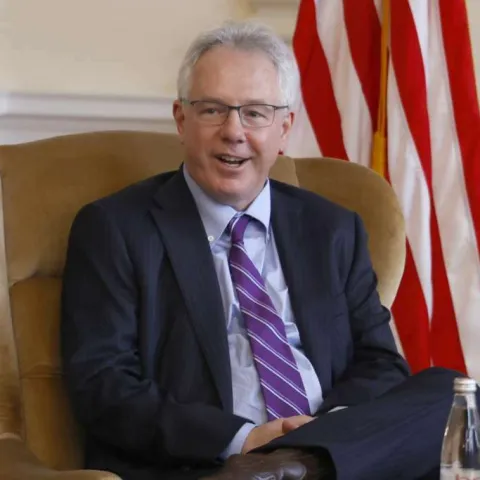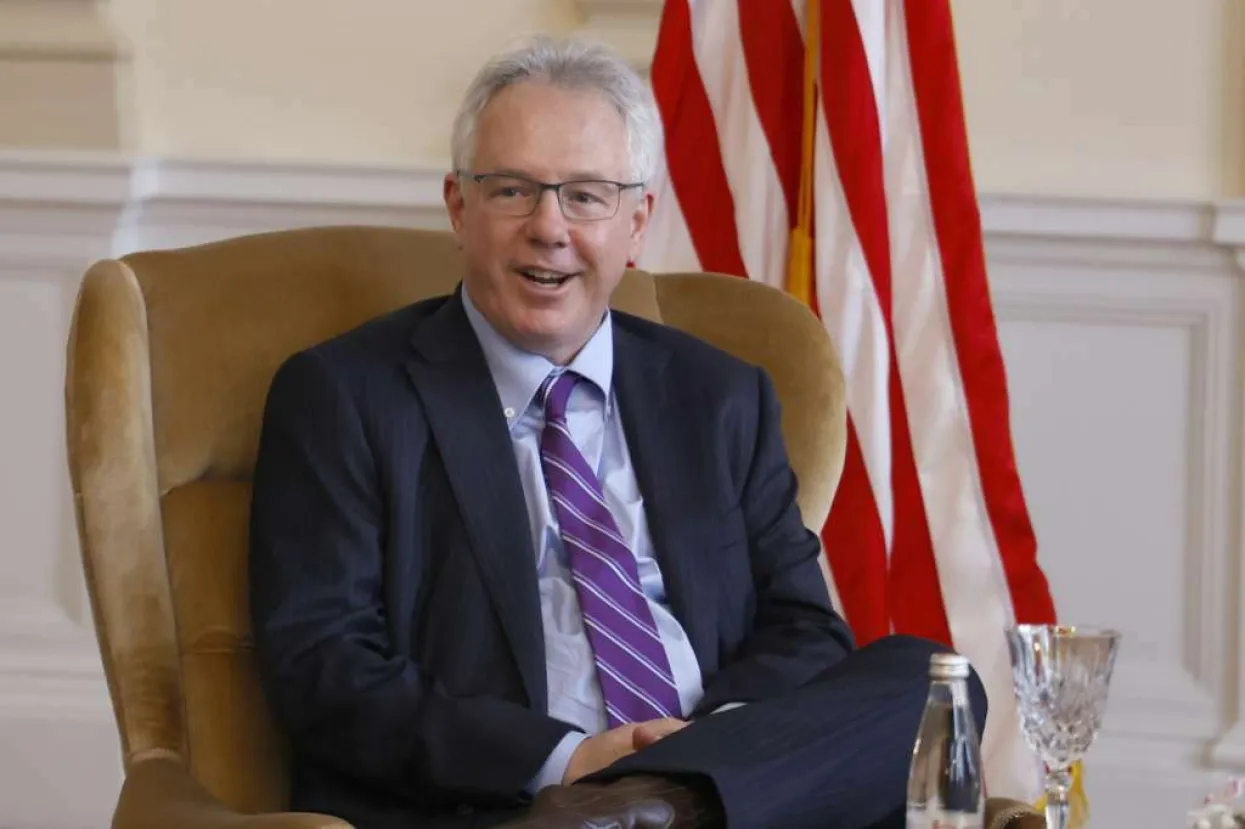

Michael Murphy
Why doesn't the US protect the peace agreement in BiH as it does in Northern Ireland?
Virtually all of human history consists of bloody armed conflicts, crimes, ethnic cleansing and the destruction of entire towns and villages, all of which cause immense pain, suffering and stagnation. A necessary precondition for development and prosperity is therefore a state of peace. Achieving a peace agreement is a huge step forward that allows the warring parties peaceful coexistence, cooperation, progress and prosperity.
Author: Martin Mikulić
Therefore peace agreements are a serious matter everywhere in the world. A peace agreement is a holiness that is not touched, especially not without the voluntary consensus of all parties that have signed the agreement. The reason for this is simple - the collapse of the peace agreement ends peace, which then paves the way for a new war.
The United States plays a major role in certain neuralgic parts of the world, and as the world's leading power, it is a kind of guarantor that the parties will adhere to the signed agreement.
For example, the United States is extremely committed to preserving the Good Friday Agreement, a peace agreement reached in Northern Ireland in 1998. There, tensions have recently risen since pro-British, unionist Prime Minister Paul Givan resigned in early February as a sign of protest against the so-called the post-Brexit Northern Ireland Protocol, which de facto created a border between Northern Ireland and the rest of the United Kingdom. The matter became more complicated after the elections held on May 5, in which the pro-Irish Sinn Fein won a historic victory.
The foundations of the peace agreement are shaken, prompting a reaction from the US State Department in which it called on the political leaders of Northern Ireland to "take the necessary steps to re-establish a power-sharing executive, which is one of the core institutions established by the Belfast/Good Friday Agreement". State Department reiterated it remains "deeply committed to preserving the peace dividend of the Belfast/Good Friday Agreement and will always strive to protect these gains for all communities".
This is a serious statement by which the United States made it clear it wants to preserve peace in Northern Ireland and that protection of both Catholic and Protestant communities is a necessary precondition for it, thus they both must be adequately represented in the executive.
However, if we look at some of the US stances towards Bosnia and Herzegovina and the Dayton Peace Agreement they sponsored, we will see that the US has unfortunately been in favor of the Bosniak-Muslims side for too long, as evidenced again by the arrival of new US Ambassador Michael Murphy.
Starting from that famous sentence of the US diplomat Thomas Miller "Croats should either assimilate or emigrate", through Barry's and Petritsch's amendments which annulled the parity in the Croat-Bosniak Federation and almost completely destroyed the constituency of Croats guaranteed by the peace agreement, to the latest pressures by Ambassador Murphy in negotiations on changes to the Election Law who tried to persuade Croats to agree on reducing the powers of the House of Peoples. All this was done either with the direct assistance or at least the silent support of some US diplomats.
If Croats agreed to the anti-Dayton request to reduce the power of House of Peoples, it would de facto mean the political and, consequently, biological death of the Croat people in BiH, and thus also the end of Dayton Peace Agreement, which guarantees equal status to all three constituent peoples (Bosniaks, Croats and Serbs).
Therefore, questions arise - why does the United States firmly protect and responsibly adhere to the peace agreement in Northern Ireland, while on the other hand some, irresponsible US officials directly violate the preconditions for peace in Bosnia and Herzegovina? Why not protect the constitutional framework in BiH they created themselves? Why has the US been supporting the majority, Bosniak-Muslim hegemony for two decades, which is destroying the foundations of peace in BiH? Why is the United States, just like in Northern Ireland, not committed to protecting all the constituent peoples of BiH? Why did the US already allow political violence in which the electoral will of the Croat people was completely ignored for 5 times?
Whether it is a colonialist reflex, incompetent, corrupt or conformist diplomats, or simply negligence, lack of interest and lack of connection with the central in Washington - it is less important. The damage is in any case identical, and the result of partly irresponsible and unprincipled US policy in BiH is today's the biggest political crisis since the end of the war in BiH.
All this is happening due to the neglect of the importance of the Dayton Agreement as a framework that ensured peace in BiH. A concrete article of the BiH Constitution is being ignored, which says that the decisions of the Constitutional Court are binding, but the US still tolerates the Bosniak blockade of the rule of law and the fact that Bosniak elites are de facto continuously rejecting the essence of the Dayton Peace Agreement.
It is particularly disappointing that the disputed, discriminatory and anti-Dayton Election Law has not changed, although US Secretary of State Anthony Blinken advocated changing the Election Law in the non-election year of 2021. In addition, the United States witnessed the so-called Mostar Agreement which also guaranteed the amendment of the Election Law according to the basic Dayton principles.
Despite the fact that the US envoy for electoral reform Matthew Palmer strongly advocated a return to the Dayton framework so that BiH could truly have free and democratic elections, no agreement was reached. The new US Ambassador Murphy did not adhere to the commitment to protect the peace agreement as the United States does in Northern Ireland, but sided with the Bosniaks and practically agreed to support Bosniak anti-Dayton proposal, i.e. reducing the powers of House of Peoples, which would undermine the foundation of the peace agreement - the power-sharing between the three constituent peoples.
Although the political situation in BiH is extremely complex, the key to peace, stability and progress is actually very simple - protecting and preserving what has brought peace to BiH. The Dayton Peace Agreement is a precondition for peace in BiH, and its gross violation by the pro-Bosniak political bloc actually means provoking a new war.
The highest level of US State Department should finally pay increased attention to deviations in Bosnia and Herzegovina and not allow the credibility of US foreign policy in the world to be undermined. If one principle is applied in Northern Ireland, then the same should apply to BiH. This is the only way to ensure long-term peace and stability, so it is time for a more responsible policy of all actors who participate in political life in BiH, among which the United States has a key role.
Dnevnik.ba